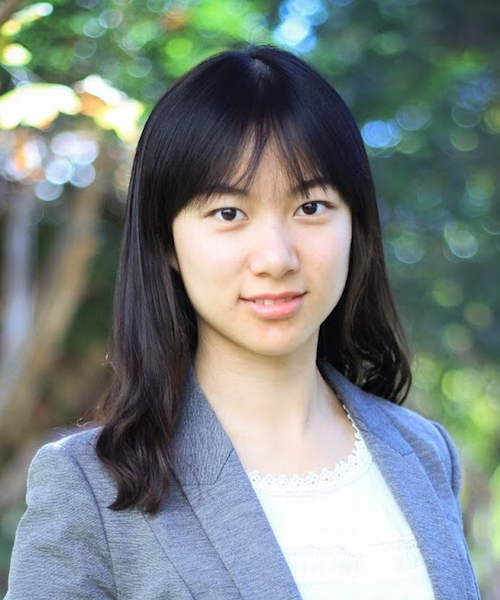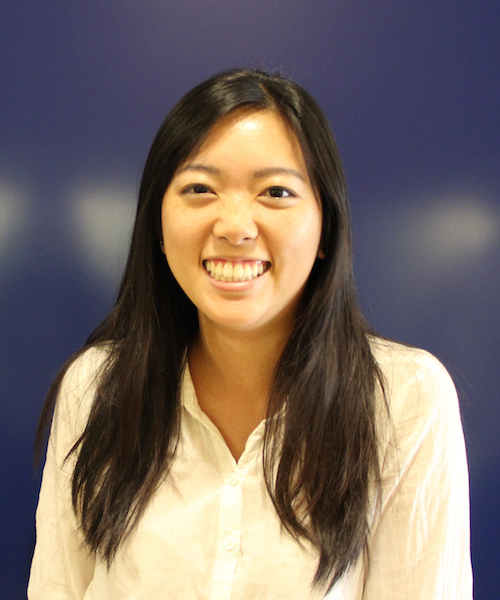
Paint this beautiful blueprint of the future together, shall we?
Ruolin Zhao | July 31, 2018
Responding To: Reflecting on the 2017-2018 U.S.-China Student Fellows Program
Haile Chen
Looking back on the past year, I have so many people to thank, including myself. I decided on and worked hard to apply for this amazing program. Just one year ago, I recognized my passion for international affairs. As a student majoring in construction management I was very concerned with the implementation of the Belt and Road Initiative. But then I discovered I was more interested in the economic and political factors lying behind the project rather than just a specific construction program. After this year’s dialogue through in-person meetings and our web-based platforms, I have a firm determination to understand and explore the way the whole global society functions.
Today, the relationship between the United States and China is most important for the evolution of global governance and prospects for world peace. With a lot of inevitable national differences, how much room still remains for both sides to cooperate? I can clearly see the huge differences in people’s perspectives through this program. Heated discussions and debates happened everywhere, in classrooms at Georgetown University, in the Chinese Embassy, at the hotel, and even in our travel van. What are the benefits of China’s political system? What do unalienable rights really mean to the two countries’ people? Does China exist under rule of law? I enjoyed such talks, which encouraged me to think in a brand new way— more like an outsider and more objectively. I kept asking myself: Is difference really a bad thing? With the discussions going into more depth, I tend to give a negative answer to this question. Only one voice is dangerous. And in fact, sometimes we can achieve the same goal by different approaches. For example, the CCP lays more emphasis on “serving people” while the U.S. government highlights it is “responsible for the taxpayers”. Yet, we both want to improve the living standards of our people. Regarding the liberal democratic system adopted by the United States as superior to other forms of government, such a line of thinking can hardly be accepted by China. I am not saying we don’t receive criticism, but criticism with prejudice is neither fair nor constructive to the discussion.
That is to say, I think “harmony in diversity” is an ideal state for the international community. But when we are talking about harmony, we must admit that to achieve it, a basic consensus is still needed. Can we find such consensus? The answer is yes. Of course, I am not talking about the political system but something at a basic level: values. During a discussion in Beijing, Professor Wilder asked us to summarize the key values and characteristics of our elders from both the Chinese and U.S. sides. Just as mentioned above, there were definitely differences. But what surprised us most was that we found a lot of things in common. Family solidarity and continuity, respect for elders, manners…these words appeared on the both sides of the whiteboard. People were more similar than we imagined. Apart from these existing values, the wave of globalization is so fierce that it can bring all of us together. With the development of the Internet and transportation technology, more and more people will be global citizens. That is good news for mutual understanding and the formation of consensus. Though the fellows in my cohort and I are different, we still love each other deeply and keep close connection after the program. I believe our friendship will enjoy longevity.
More succinctly, we can seek common ground which forms the foundation for cooperation, while reserving differences which deserve due respect. Since the rise of nation-states in 17th-century Europe, lasting peace has never been achieved and the world has witnessed ceaseless power struggles and wars as states competed for dominance on the international stage. Is it possible to get out of this cycle? I don’t know, but I think it is worth a try. Competition is inevitable, but it doesn’t mean we have to get stuck in a zero-sum game. If we do not believe we can achieve peace and development by helping each other, such goals will just be a mirage and empty talk.
This program has helped me strengthen my resolve to make contributions to global common prosperity. At the end of this program, Professor Wilder mentioned that actually the ten of us fellows are more globalized people. Even under such conditions we have to do much to eliminate misunderstandings. You can imagine the hardship we will face in constructing mutual trust. Nevertheless, where there is a will, there is a way. I do not know how to express my extreme gratitude for this program but I will definitely do my best to push this process forward — All men on earth are human brothers.
Haile Chen ('19) is a junior at Tsinghua University in Beijing, majoring in construction management and minoring in finance.

Ruolin Zhao | July 31, 2018

Ulysses McGuinness | July 31, 2018

Michael Mullaney | July 25, 2018

Cynthia Wang | July 24, 2018

Jessie Dalman | July 20, 2018

Yamillet Payano | July 19, 2018

Chenyu Wu | July 18, 2018

Yunxin Wang | July 18, 2018

Hongjin Xu | July 16, 2018